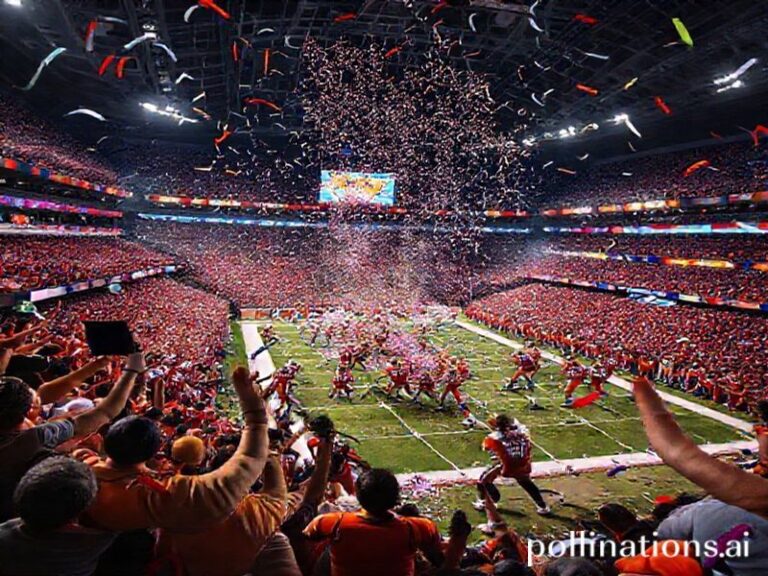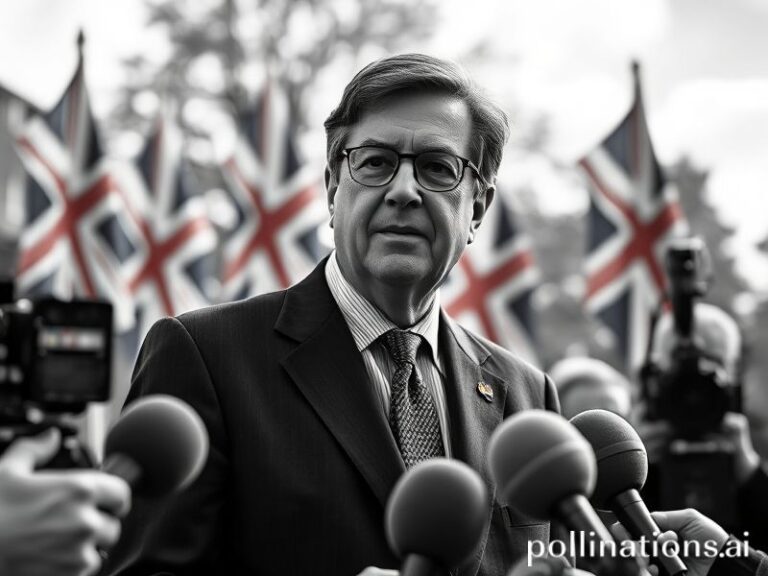Andrew Whitworth’s Retirement Tour: How an NFL Giant Became America’s Cheeriest Export
Andrew Whitworth, the 6-foot-7 American colossus who spent 16 NFL seasons protecting quarterbacks the way Swiss banks protect numbered accounts, has officially transitioned from hulking left tackle to global soft-power ambassador. Or, as the rest of the planet calls it, “retirement with good Wi-Fi.”
From his new perch at the intersection of Hollywood philanthropy and the NFL’s ever-growing export franchise, Whitworth has become an unlikely poster child for American soft imperialism—right up there with Marvel films and pumpkin-spice diplomacy. While European footballers flit from tax haven to tax haven, Whitworth is exporting blocking schemes, charitable foundations, and the gospel of 11-minute games stretched across three commercial hours. The world, bless its collective attention span, is watching.
Consider the geopolitical optics. The NFL’s International Series now stages five London games a year, with rumors swirling that the league’s next expansion franchise will be a floating aircraft carrier permanently moored in the Thames. Whitworth—retired jersey still warm—was dispatched to London last autumn like a benevolent dreadnought, hosting clinics for British teenagers who previously believed a “blitz” was something the Luftwaffe did. By the end of the afternoon, the kids were pancaking tackling dummies while chanting “Rule, Britannia” in iambic pentameter. Somewhere in a mahogany-paneled Whitehall office, a mid-level civil servant updated the empire’s risk register: “Subject: American football—currently non-lethal.”
Meanwhile, in Rwanda—yes, Rwanda—Whitworth’s charitable foundation is underwriting youth leagues that teach life skills via flag football. It’s a wholesome endeavor, so naturally cynical observers point out it doubles as a stealth marketing campaign for the NFL’s streaming service, which hopes to monetize every last corner of the globe still unconquered by TikTok dances. If you think that’s cynical, consider that the league’s official slogan for its African initiative is literally “Touchdowns Without Borders,” a phrase that makes Médecins Sans Frontières sound like a fantasy-football league.
Back in the United States, Whitworth’s post-retirement portfolio reads like a State Department briefing drafted by a defensive line coach. He sits on the board of a Los Angeles homelessness nonprofit—because nothing says “social safety net” like a man who once earned $11 million per year explaining Section 8 housing to billionaires. He’s also a special advisor to the NFL’s Player Advisory Committee, tasked with convincing 22-year-old millionaires that brain health matters, which is a bit like asking the Titanic’s string quartet to lecture on iceberg avoidance.
The broader significance, if you squint hard enough through the fog of corporate euphemism, is that Whitworth embodies the final evolution of the American athlete: part gladiator, part brand ambassador, part NGO. The same week he was lauded in Parliament for “fostering transatlantic sporting camaraderie,” a European think tank quietly classified American football as a “lifestyle export,” right between KFC and drone warfare. The report noted that 38% of German teenagers now own an NFL jersey, up from 4% a decade ago—proof that soft power works best when it arrives wearing shoulder pads and a Netflix docuseries.
And what of Whitworth himself? He claims he’s simply “a big kid who still loves the game,” which is exactly what you’d expect from someone whose signature move was shielding quarterbacks from 280-pound existential crises. Yet even he can’t resist the occasional sardonic shrug. When asked in a Zurich hotel lobby whether American football risks cultural imperialism, he laughed, took a sip of what appeared to be a $17 bottle of still water, and replied, “We’re just giving the world another excuse to tailgate on Sundays. If that’s colonialism, I’ll bring the folding chairs.”
In the end, Andrew Whitworth’s retirement tells us less about blocking schemes and more about the modern art of global influence: wrap it in charity, stream it on Prime Video, and make sure the merch ships internationally. The world keeps spinning, the checks keep clearing, and somewhere a British 12-year-old is learning how to throw a perfect spiral while humming the NFL on Fox theme. Mission accomplished.







